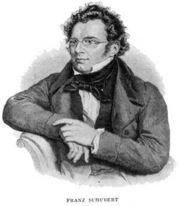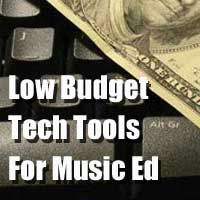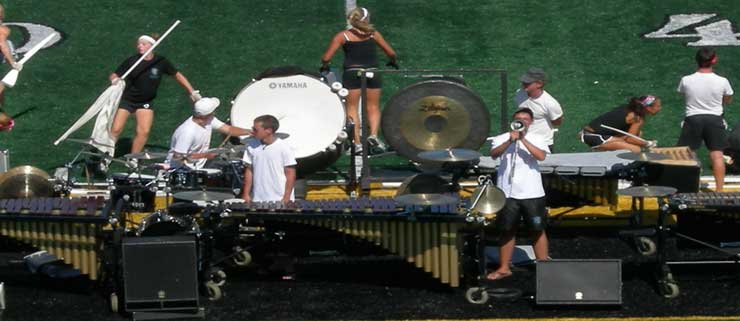 The Classical Period is from c.1750 – 1830.  The word classical links up with an idea from Ancient Greece, and as a musical term, it means observing certain formal principles of writing, using refinement and polish.
The Classical Period is from c.1750 – 1830.  The word classical links up with an idea from Ancient Greece, and as a musical term, it means observing certain formal principles of writing, using refinement and polish.
The term 'classical' has two primary meanings: the music of the Classical period (c.1750-1830) as represented by Franz Joseph Haydn (1732-1809), Wolfgang Amadeus Mozart (1756-1791), Ludwig van Beethoven (1770-1809) and Franz Peter Schubert (1797-1828.) Secondly, 'classical' can mean music as an 'art.' By this, classical music will be different from jazz, popular or even folk music. Â
The Symphony
The most important type of work from Classical period was the symphony which literally means 'sounding together.' Usually a simple symphony orchestra consists of strings, flutes, oboes, clarinets, bassoons, trumpets, horns and timpani. During the 18th century the orchestra was a much smaller group than it is now which is in large scale. In fact, it was just an instrumental section of a choral work.Â
The crescendo sign, which first appeared in 1747, became very important. Composers also wrote a lot of music for the newly-developed piano as it allowed them to use the effects of loud and soft music.
Franz Joseph Haydn
Franz Joseph Haydn was an Austrian composer. He was fortunate to be employed and have a patron most of his life providing him with financial security. The older Franz Joseph Haydn and the young Wolfgang Amadeus Mozart knew each other and held each other in high esteem. Ludwig van Beethoven became Haydn's pupil. Haydn had his work performed in England. He wrote over 100 symphonies but his best known is Austria which was the national anthem for that country.Â
Wolfgang Amadeus Mozart
Wolfgang Amadeus Mozart was a child prodigy. He is considered the greatest composer that ever lived. He began writing his own music around the age of four. He was probably the first freelance musician when he left Salzburg for Vienna, teaching and writing music.  He lived for only 35 years and yet in that span of time, he wrote 40 symphonies, nearly 20 operas, 20 piano concertos and numerous other compositions in all genres as no other composer has done, totaling to about 626 compositions.Â
Ludwig van Beethoven
Ludwig van Beethoven bridged the Classical and the Romantic periods. He revolutionized music as an art. Although he followed the established patterns for music, he also added many of his own ideas. He worked in Vienna and his growing fame brought in orders for more music. Beethoven began to go deaf around the year 1800. He wrote nine symphonies, 32 piano sonatas including the famous Moonlight Sonata, nine overtures, five piano concerto and some other works. He only composed one opera, Fidelio.Â
Franz Peter SchubertÂ
Franz Schubert, the youngest of these masters, is famous for his numerous lieder (German term for songs) and solo piano music. He also wrote nine symphonies including his "Unfinished Symphony," some operas including Alfonso und Estrella, and chamber music. He is most popular with his Piano quintet in A major, The Trout. He is considered the greatest melodist of all time.     Â
Other Classical Composers:
Other composers of these period were C.P.E. Bach, Luigi Boccherini, Nicolo Paganini, C. W. Gluck and Carl Maria von Weber. Â Â Â
Some Classical Period Music:
-
Beethoven's Piano Sonata in C minor
-
Beethoven's "Fur Elise"
-
Beethoven's "Moonlight Piano Sonata"
-
Beethoven's "Ode to Joy"Â
-
Excerpt from Mozart's The Magic Flute
-
Excerpt from Mozart's Don Giovanni
-
Except from Mozart's The Marriage of Figaro
-
Excerpt from Mozart's Cosi fan Tutte
-
Haydn's Surprise Symphony No. 94
-
Haydn's Symphony No.45 "Farewell"
-
Haydn's Symphonies No.94 "The Sunrise"
-
Haydn's Symphony No.100 "The Military"Â
-
Mozart's Symphony No.40
-
Mozart's Eine Kleine Nachtmusic
-
Mozart's Piano Concerto No. 21
-
Mozart's Piano Sonata No.11, "Rondo alla Turca"
-
Schubert's Rondo Brilliant, violin and piano, in BÂ
-
Schubert's String Quartet No.14 in D minor
-
Schubert's Die Winterreise, song cycle
-
Schubert's Rosamunde, incidental musicÂ
Link to Classical Music LoungeÂ







 Scroll down to view the comparison chart of over a dozen different portable digital audio recorders.
Scroll down to view the comparison chart of over a dozen different portable digital audio recorders.